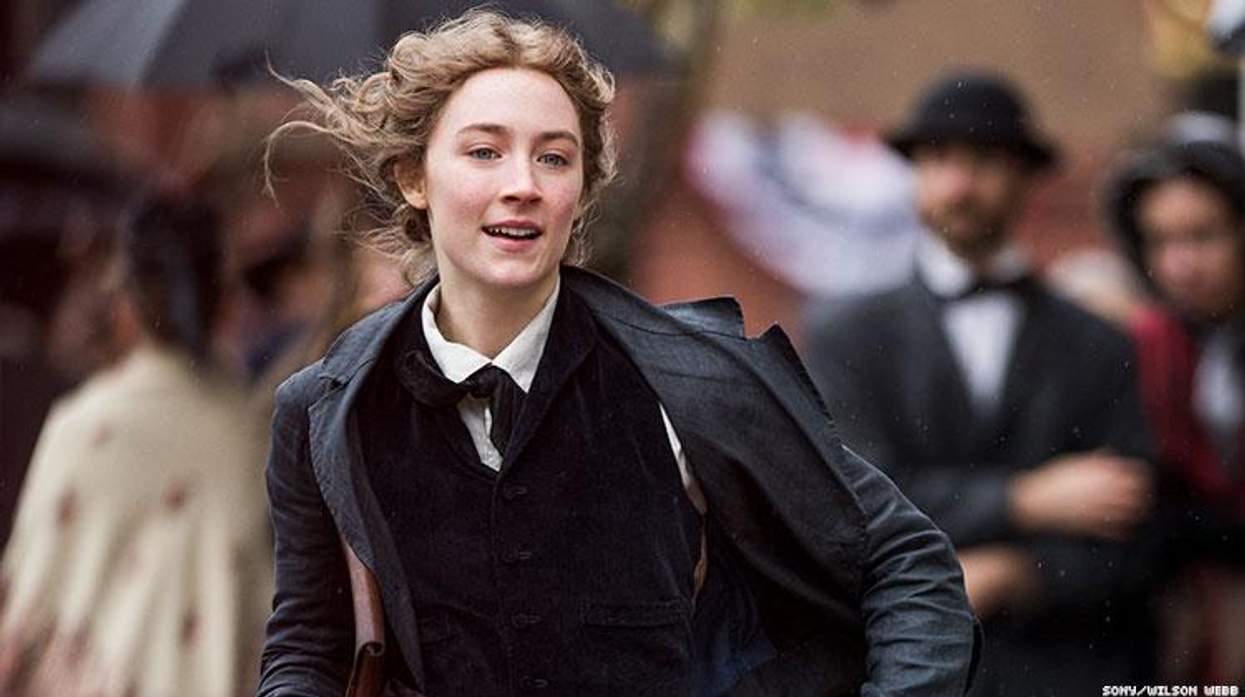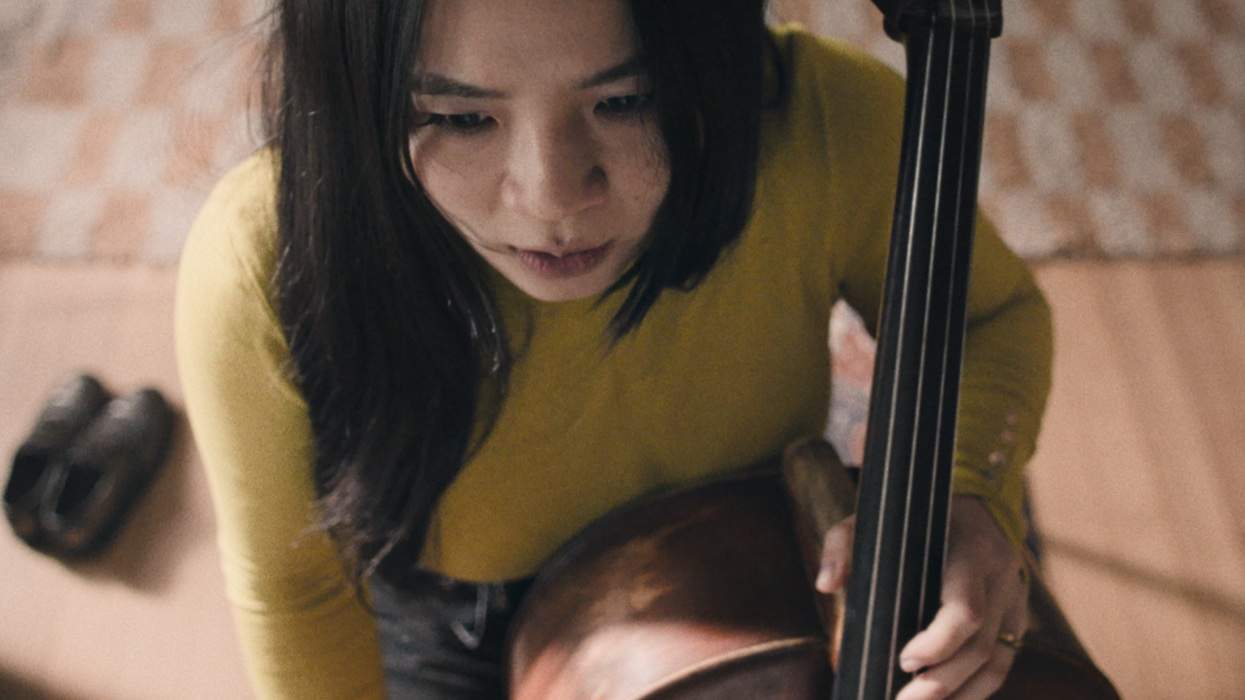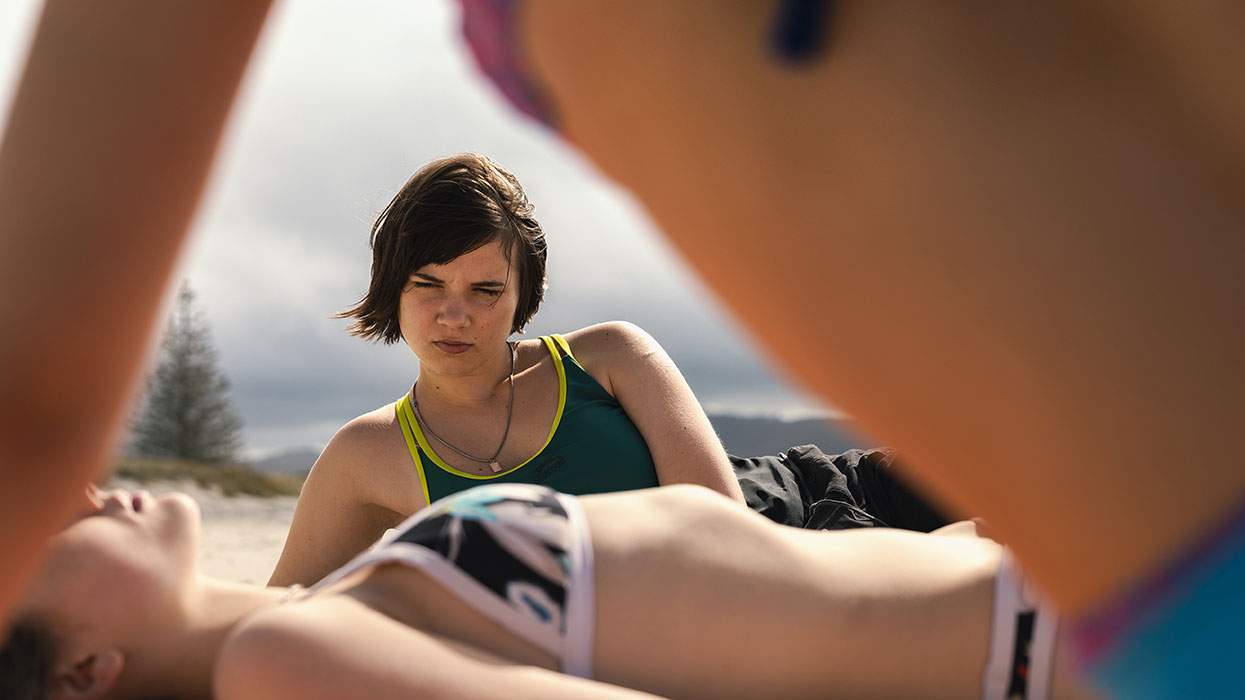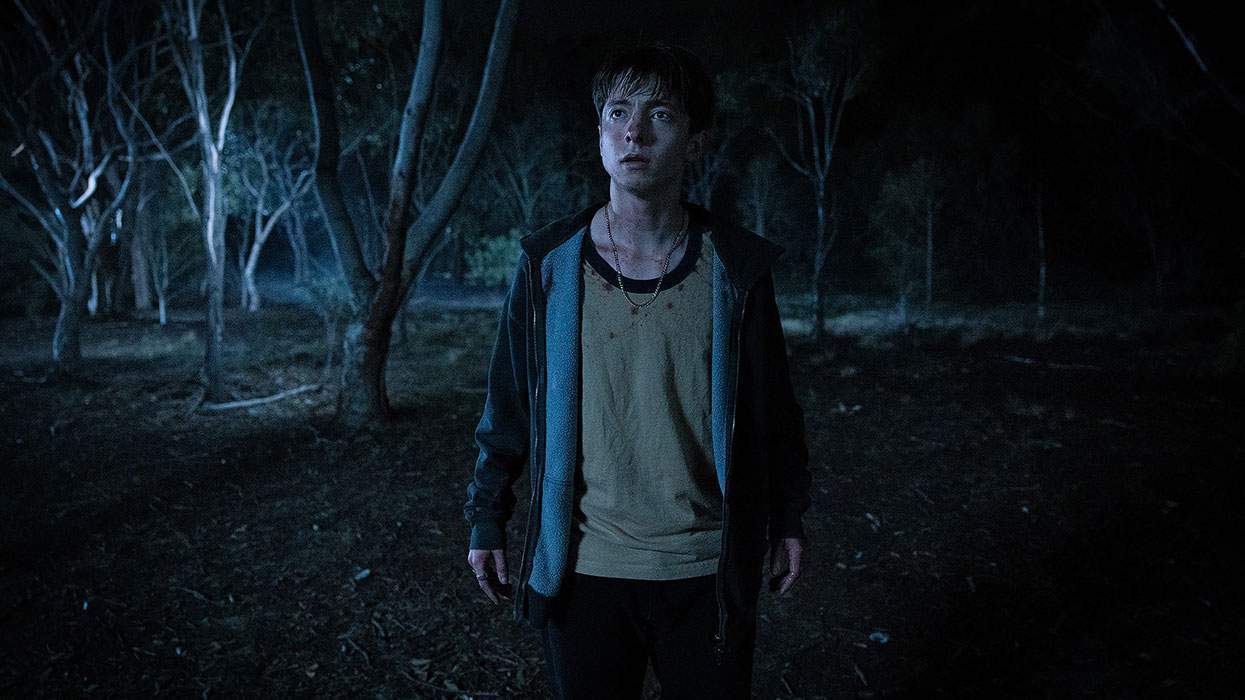Writer and director Greta Gerwig's lush adaptation of the 1868 novel Little Women drops on Christmas Day, fitting for a story that turns on seasons and cycles. For Gerwig's version of the beloved novel, she deploys a framing device that incorporates Louisa May Alcott's preferred ending, in which the formidable Jo March flexes her agency and evades marriage altogether.
Oscar-nominated Lady Bird star Saoirse Ronan takes on the role of Jo, one of literature's most revered tomboys. And Gerwig's Little Women, which includes scenes of Jo pushing back against her publisher for forcing her to marry off the independent heroine in her novel, offers the queerest and most feminist reading yet.
"I never liked that she got married," the director, who has identified with the character since she was a child, tells The Advocate. "I don't remember a time when I didn't know who Jo March was. I've always had Jo inside of me. It's like the Beatles. I don't know when I heard the Beatles. I've never not known 'I Want to Hold Your Hand.' You just know it."
"[Alcott] did not want to marry [Jo] to anyone," she adds. "[Alcott] was constrained by the morals of her time," Gerwig says of the publisher's insistence that Alcott marry Jo off.
Rather than give ardent fans of the time the ending they craved in which Jo and her best friend, Laurie (played by Timothee Chalamet in the new film), wed, Alcott had Jo marry professor Friedrich Bhaer, with whom she had little chemistry.
"I made her a funny match out of spite," Gerwig says of how Alcott described the marriage to the professor that occurs in the sequel to Little Women, called Good Wives, which is now commonly incorporated into the story of the Civil War-era March sisters and their mother Marmee as a single work of a literature.
"I felt like if I can't give Louisa May Alcott an ending she would have liked 150 years later, then there's no reason to make this movie again," the director says of the sure-fire hit that also stars Emma Watson (Meg), Sharp Objects' Eliza Scanlen (Beth), Midsommar's Florence Pugh (Amy), Laura Dern (Marmee), and Meryl Streep (Aunt March).
A double Oscar-nominee for writing and directing the 2017 hit Lady Bird, Gerwig delved into Alcott's life and letters to discover the writer's fierce independence at a time when heteronormative matrimony was compulsory. Despite the mores of the time, Alcott's proxy Jo was a gender-busting pioneer, eschewing the niceties in which young ladies were expected to engage and instead penning plays she and her sisters Meg, Amy, and Beth would perform in which she always played the male role.
"I remember getting chills after reading [Gerwig's screenplay]. I just thought it was such a clever way of, like, giving the audience what they want," says Ronan.
The result of the very modern and meta interweaving of Alcott's life with Jo's is that viewers can choose to believe that Jo never in fact marries the professor -- that they only wed in the novel Jo writes but that in life she remains, as Gerwig says, "a literary spinster."
"I am more than half-persuaded that I am a man's soul, put by some freak of nature into a woman's body," Alcott once said, according to biographical material that Gerwig references. "I have fallen in love in my life with so many pretty girls and never once the least bit with any man."
The writer-director leans into the gender fluidity inherent in Alcott's text through the characters of Jo and her friend and neighbor Laurie. Not only are their characters' names non-specific to gender, but Ronan and Chalamet (who also starred together in Lady Bird) swap vests and coats throughout the film, rendering their wardrobes gender-neutral. Their love and friendship are based in what Gerwig calls their "pre-gendered childhood," that is, until Laurie forces Jo to pick a gender role by proposing marriage as an ultimatum.
"You'll see them trade vests and trade coats all the time, which I loved because I wanted them to feel like they're twins in a way that they're a man-woman, woman-man," Gerwig says. "They're both so gorgeous. Timothee doesn't need to be a man and Saoirse doesn't need to be a woman to be gorgeous. They could both be whatever and they're just beautiful people."
Ronan lauds Gerwig for pulling back the text and opening it to an interpretation many LGBTQ readers have likely always gleaned from the novel.
"What's so amazing is the opportunity we had to represent the queer community with this. There is a good chance that Louisa herself probably was at least bi," Ronan says, referring to historical information.
"'I want to be able to move freely and I don't want rules on who I'm supposed to love,'" Ronan says, quoting Jo in a scene with Marmee. "She's really torn by this. You could read that in a way [with a queer interpretation] and I think it's totally right."
"Even though she's not a very feminine girl herself, I do think she's really in love with women. The people in her life that she looks up to and who have been the only ones to take care of her apart from Laurie are Marmee and her sisters," she adds.
While Gerwig shines a light on Alcott's writing in a way that hasn't been emphasized in prior adaptations, she says the subtext was all there to be discovered.
"I didn't want to give her some sort of label," Gerwig says of Jo. "I just wanted to live with the kind of openness of it and to look at these scenes with that idea behind it, to just sort of live with some ambiguity there, because her legacy certainly allows for it."
"I didn't invent it," she adds. "I felt like it was just there."
















Charlie Kirk DID say stoning gay people was the 'perfect law' — and these other heinous quotes
These are some of his worst comments about LGBTQ+ people made by Charlie Kirk.